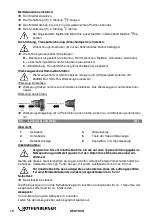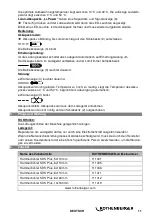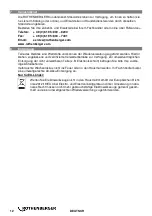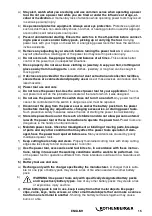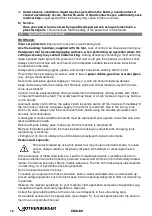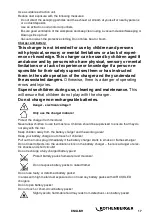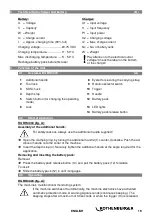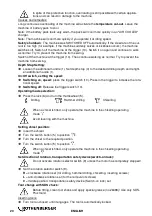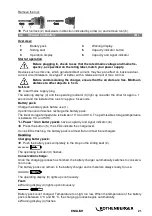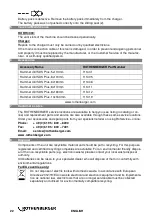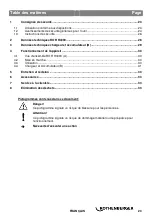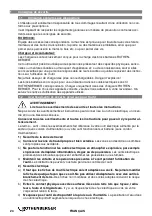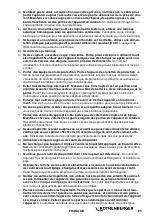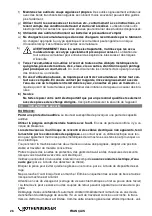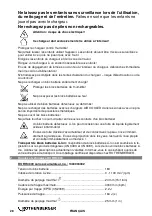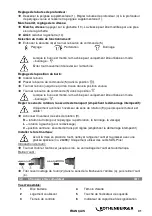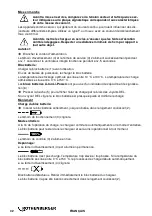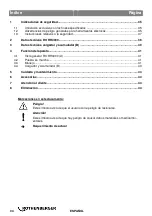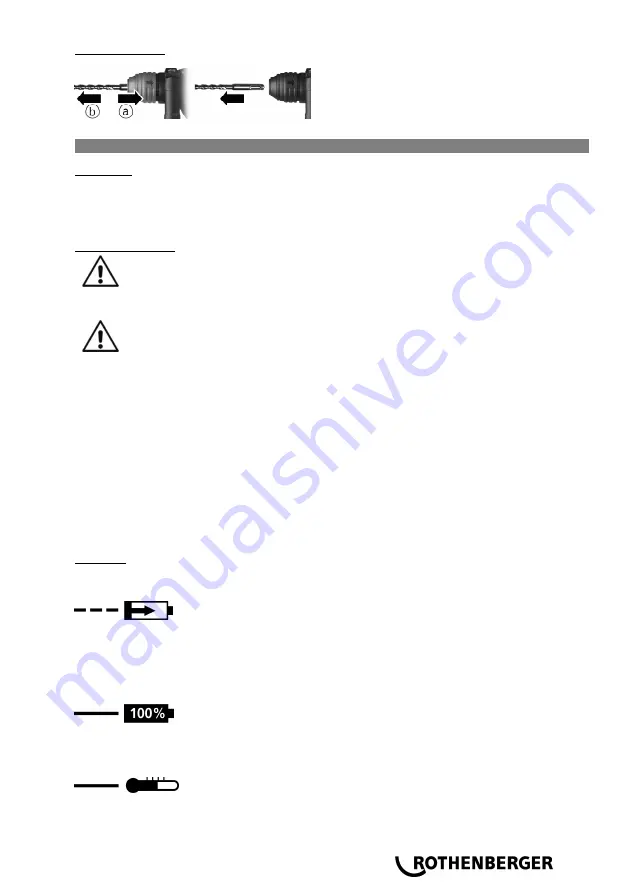
ENGLISH
21
Remove the tool:
Pull tool lock (2) backwards in direction indicated by arrow (a) and remove tool (b).
4.4
Charger and battery
(B)
Overview:
1
Battery pack
4
Warning display
2
Sliding seat
5
Capacity indicator button
3
Operation display
6
Capacity and signal indicator
Start of operation
Before plugging in, check to see that the rated mains voltage and mains fre-
quency, as specified on the rating label, match your power supply.
Devices such as this one, which generate direct current, may have an effect on basic residual-
current circuit breakers. Use type F or better, with a release current of max. 30 mA.
Before commissioning the charger, ensure that the air slots are free. Minimum
distance to other objects is 5 cm.
Self-test:
Insert mains supply plug.
The warning display (4) and the operating indicator (3) light up one after the other for approx. 1
second and the installed fan runs for approx. 5 seconds.
Battery pack:
Charge the battery pack before use (1).
If performance diminishes, recharge the battery pack.
The ideal storage temperature is between 10°C and 30°C. The permissible storage temperature
is between 0°C and 50°C.
"Li-Power" li-ion battery packs
have a capacity and signal indicator: (6)
Press the button (5), the LEDs indicate the charge level.
If one LED is flashing, the battery pack is almost flat and must be recharged.
Handling
Charging battery pack:
Push the battery pack completely to the stop on the sliding seat (2).
The operating indicator (3) flashes.
Conservation charge:
Once the charging process has finished, the battery charger automatically switches to conserva-
tion mode.
The battery pack can remain in the battery charger and is therefore always ready for use.
The operating display (3) lights up continuously.
Fault:
●
Warning display (4) lights up continuously.
Battery pack is not charged. Temperature too high/ too low. When the temperature of the battery
pack is between 0 °C and 50 °C, the charging process begins automatically.
●
Warning display (4) flashes.




